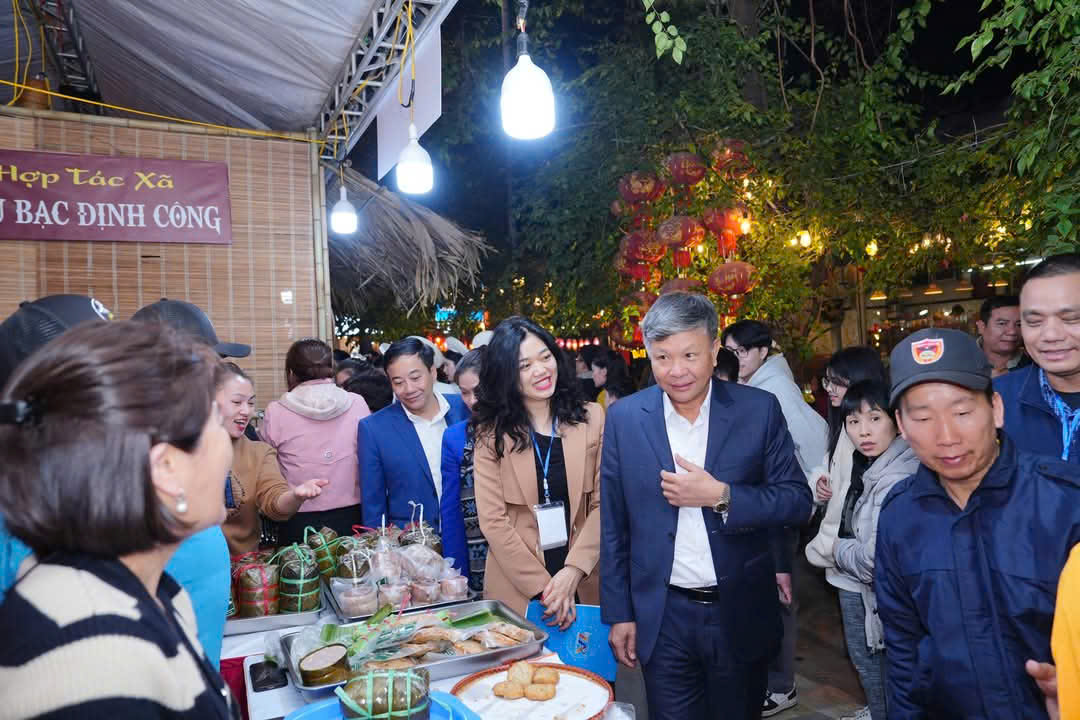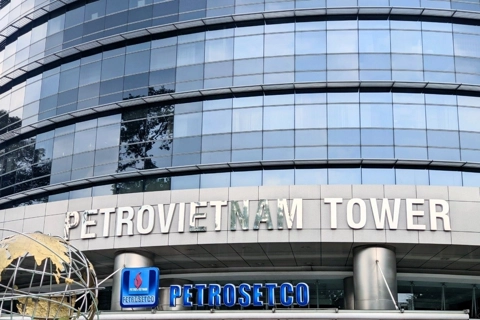Hanoi to host 2025 craft village festival for global reach
The activity is expected to promote traditional craftsmanship while fostering economic sustainability and global recognition for the city's craft villages.
THE HANOI TIMES — Hanoi will host the 2025 Festival for the Preservation and Development of Craft Villages, a highlight of its rural industry development plan.
Outlined in the city's recently released Plan No. 81/KH-UBND, the festival will feature many traditional craft villages from Hanoi, celebrate Vietnam’s rich artisanal heritage, and strengthen connections between local craft villages and global markets.

Delegates visit the product exhibition area at the Hanoi Agricultural Products and Craft Villages Festival 2024. Photo: VGP
As part of the plan, Hanoi will recognize 10 outstanding craft villages in 2025 and award them prestigious titles such as "Craft Village," "Traditional Craft," and "Traditional Craft Village."
The city will also organize a craft village product competition to give artisans a chance to showcase their skills and promote their handicrafts.
In addition to celebrating craftsmanship, Hanoi is also seeking global recognition for its craft villages. The city plans to propose two craft villages for inclusion in the World Crafts Council's Global Creative Cities Network, which aims to promote Vietnam's artisanal industry and strengthen its global reputation.
Hanoi’s Bat Trang Pottery and Van Phuc Silk Weaving villages were the first in Vietnam to become members of the World Crafts Network, a recognition announced in February this year.
With rich histories and meaningful stories behind each product, Bat Trang and Van Phuc villages have endured through the years, becoming integral to Hanoi’s cultural identity. The skilled artisans of these villages have produced countless exquisite handicrafts that have stood the test of time and continue to thrive today.
Nguyen Xuan Dai, Director of Hanoi's Department of Agriculture and Environment, said that joining the network will generate great value and benefits and help Hanoi reaffirm its position on the global cultural map.
"This is also an opportunity for artisan villages to increase their competitiveness, preserve traditional values, expand markets, and promote sustainable development," he added.
To advance this goal, authorities will introduce measures such as financial support, technology adoption, workforce training, and trade promotion. The city also plans to integrate craft preservation with tourism, transforming traditional villages into cultural destinations that drive sustainable economic growth.
Funding for these activities will come from the city's budget, supplemented by legitimate external sources. Local agencies, districts and relevant organizations will oversee implementation, ensuring alignment with Hanoi's broader economic and social development goals for 2025.
By combining heritage preservation with modern economic strategies, Hanoi aims to position itself as a global hub for traditional crafts. The event will not only increase Vietnam's artisanal presence on the international stage, but also create sustainable growth opportunities for local artisans and businesses.
The plan is part of the city's roadmap to implement a comprehensive development strategy for its craft villages from 2025 to 2030, with a vision extending to 2050, which includes policies to support rural industries, preserve cultural identity, and integrate craft villages into global creative networks to enhance their competitiveness and economic value.




-1741560475.jpeg?w=480&h=320&q=100)







